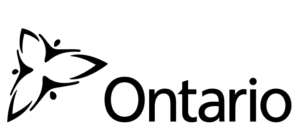Ontario Signs Agreement-in-Principle with Anishinabek Nation
 Ontario has signed an agreement-in-principle with the Anishinabek Nation on community-based regulation of tobacco and revenue-sharing to support community growth and prosperity.
Ontario has signed an agreement-in-principle with the Anishinabek Nation on community-based regulation of tobacco and revenue-sharing to support community growth and prosperity.
Charles Sousa, Minister of Finance, David Zimmer, Minister of Indigenous Relations and Reconciliation, and Grand Council Chief Patrick Madahbee of the Anishinabek Nation signed the agreement today in Toronto.
The Ontario government has been engaging with First Nations across the province on sharing a portion of provincial tobacco tax revenues with First Nations that agree to regulate on-reserve tobacco sales.
The Anishinabek Nation, a provincial territorial organization that represents 40 Anishinabek First Nations throughout Ontario, is exploring how community-based regulation could advance its public health priorities while growing the economies of its member First Nations, should the citizens choose to participate. This agreement-in-principle will guide the negotiations as Ontario, interested First Nations and the Anishinabek Nation collectively work toward agreements.
The agreement-in-principle includes a commitment to explore options for community-based regulation of gasoline sales, which could provide an additional revenue source for local priorities.
Advancing collaborative agreements like this is one of many steps on Ontario’s journey of healing and reconciliation with Indigenous peoples. It reflects the government’s commitment to work in collaboration with Indigenous partners, creating a better future for everyone in the province.
QUOTES
“Our government continues to work with our First Nation partners to develop community-based solutions for the regulation of tobacco. The signing of an agreement-in-principle with the Anishinabek Nation will enable greater collaboration and generate new revenue for community development.”
— Charles Sousa, Minister of Finance
“Signing this agreement-in-principle with the Anishinabek Nation is an exciting and historic step as we work with First Nations on a government-to-government basis to find a mutually beneficial and sustainable solution to on-reserve tobacco regulation and revenue-sharing.”
— David Zimmer, Minister of Indigenous Relations and Reconciliation
“Signing this agreement-in-principle with our provincial counterpart is another step forward that will allow for the continuation of necessary and important discussions surrounding tobacco and gasoline revenue-sharing with our First Nations citizens and retailers, as this has been and will continue to be of utmost importance.”
— Patrick Wedaseh Madahbee, Grand Council Chief, Anishinabek Nation
QUICK FACTS
- The Ontario government and the Anishinabek Nation have been working together since 2015 to explore the development of a framework for self-regulation of on-reserve tobacco and gasoline.
- This agreement includes input from First Nations, gasoline retailers and industry on how to modernize the existing Ontario Gas Card Program.
- In December 2017, Ontario reached a similar agreement-in-principle with the Mohawk Council of Akwesasne regarding tobacco regulation and revenue-sharing.
- In July 2017, Ontario reached a similar agreement-in-principle with the Chippewas of the Thames First Nation regarding tobacco regulation and revenue-sharing.
- The 2017 Ontario Budget announced the province’s intention to collaborate with First Nations on amendments to the Tobacco Tax Actand other legislation to support effective coordination and integration of provincial legislation with First Nation tobacco laws.
- The Journey Together: Ontario’s Commitment to Reconciliation with Indigenous Peoples outlines the province’s response to the Truth and Reconciliation Commission’s calls to action.
LEARN MORE
For media inquiries only:
Jessica Martin, Minister’s Office
416-212-5181
Deepika Shewaramani, Ministry of Finance
Deepika.Shewaramani@ontario.ca
(416) 326-3665
Laura Barrios, Anishinabek Nation
705-497-9127
For public inquiries:
1-866-668-8297
TTY: 1-800-263-7776


